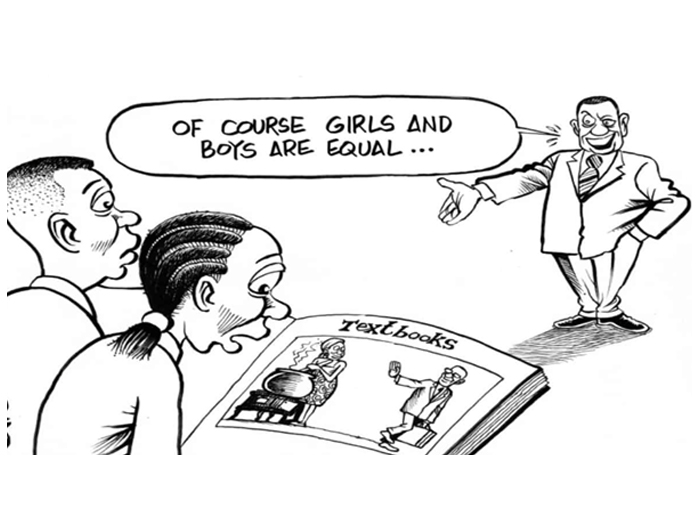The lack of evolution in the ICSE literature syllabus
Literature is a timeless tool of self-expression. It not only helps with personal character development by invoking empathy, understanding and creativity, but it also provides us with an insight into society. It serves as a window through time and culture while also actively shaping the present.
Literature, being such a powerful tool of shaping masses when mishandled can have dire consequences. I would like to point out that the tenth-grade Hindi ICSE syllabus, which is not only archaic but also conservative, is one such example. 19 out of the 20 short stories and poetry in the book SAHITYA SAGAR1 are written by men, most of whom are from the upper caste and class as inferred from their full names. This in itself forgoes the scope of representation of women and people from lower castes and thus provides an inconsistent image of the Indian culture.
I am sorry to note, that the stories also show a sexist and patriarchal attitude in their narration. Women are portrayed as subservient, emotional caregivers, while men are always the virtuous breadwinners. Most of these stories are about men and their problems while women take the back seat: the passive role of the supporting character.
One story goes on to implicitly sanction domestic violence. In this, the woman chooses the forgives her brother-in-law for throwing a wooden slipper at her head. This choice is then idealised and considered as a perfect example of what all virtuous women should do. There are many such examples of gender stereotypes found across the poetry and prose in the stories.
These stereotypes have lifelong negative consequences that are perilous for girls and boys alike. Continuous reiteration of these unequal gender relations stunts the freedom of all individuals to develop their human capacities to their fullest.
Here I would like to mention that the English ICSE syllabus is no better. 18 out of the 20 poetry and prose in the book TREASURE TROVE are written by men. In one of the stories the woman because of the "desolation of her woman's nature", due to not having a child and thus "nothing to love and care for", had become cold and miserable. While some women may have similar experiences, such representation in one out of a mere ten stories gives an incorrect message, that women without children are incomplete.
Also, literature taught in schools following the ICSE board curriculum takes upon a different tangent. The authors' words and views are considered sacrosanct and need to be memorised and reproduced in the exam to score marks in boards. The readers are discouraged from having their personal opinion, or discuss debate or challenge the text. This way of teaching and learning literature goes against everything it stands for.
Change can happen, but it requires political will and active intervention. I hope that the ICSE board will find that will and opportunity to go over their curriculum with an open mind.
(Syllabus Reference: https://cisce.org/publicationdetail.aspx?id=94)

